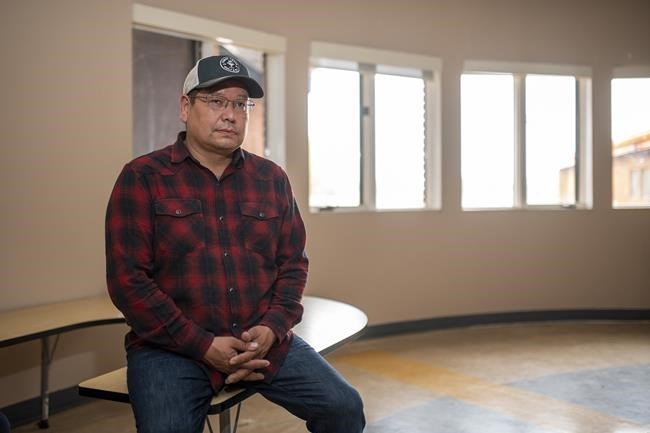PRINCE ALBERT, Sask. — The chief of a First Nation where there was a recent mass killing says some people are still sleeping with their guns.
James Smith Cree Nation Chief Wally Burns made the comment Friday, as Indigenous leaders in Saskatchewan gathered to call for immediate resources to address what they call a safety crisis in the north.
"Our community is still in shock and very uneasy on who walks through that door," said Burns. The Sept. 4 stabbing rampage left 11 people dead and 18 injured on the First Nation and in the nearby village of Weldon, northeast of Saskatoon.
Myles Sanderson, 32, the suspect in the attacks, later died in police custody.
Leaders from across the northern part of the province said violence had reached crisis levels in many of their communities and people are living in a constant state of fear. They called for all levels of government to come to the table to find Indigenous-led solutions for the short- and long-term.
Montreal Lake Tribal Council Vice Chief Richard Derocher said he spoke with elders who are sleeping with baseball bats in their beds. Nurses have called for 24-hour security, cameras and a fence to surround community health centres, he added.
"We are not here to lay blame," he said during a news conference in Prince Albert. "We are here to raise awareness, to let the governments know we are not all right in our communities.”
In response to the stabbing rampage, federal Public Safety Minister Marco Mendicino signed an agreement with the Prince Albert Grand Council, which includes James Smith Cree Nation, to explore new ways to improve safety on some First Nations in the province.
The agreement between the grand council, the Saskatchewan government and Ottawa creates a collaborative working relationship for community-oriented ways to deliver police services.
The move was described as an important step, but Derocher said communities throughout the north feel unsafe because of violence, addictions and a lack of policing.
"We need the government to come to aid -- to all the communities," Derocher said.
"We are one event from having it happen in any of our communities.”
Montreal Lake Tribal Council leaders said they are frustrated that their ability to respond to crises has not improved since the community of La Loche was devastated by a 2016 shooting at a school and a home that left four people dead.
The violence is connected to colonialism and residential schools, the leaders said. It is also rooted in issues around a lack of supports for mental health, housing and education in the north.
Chief Karen Bird said Peter Ballantyne Cree Nation, which is comprised of eight communities with about 12,000 people, has faced multiple emergencies due to violence and the COVID-19 pandemic.
"We are dealing with funeral after funeral," she said. "Within this year, we are dealing with a $1-million bill at the funeral home for the many people we have lost."
Some chiefs said they did not have enough information to know whether a new marshals service would help. The Saskatchewan government has said the Saskatchewan Marshals Service would see 70 officers in place by 2026 to respond to areas with high crime rates, to arrest people with outstanding warrants, and to investigate farm-related crimes.
Indigenous leadership has called for self-administered police programs on First Nations.
The federal government's current First Nations and Inuit Policing Program, created in 1991, shares costs between provinces and the federal government. It has been criticized for underfunding those services and not being accessible to nearly one-third of First Nations and Inuit communities.
There are 35 First Nations police services across the country including one in Saskatchewan. The File Hills Police Service serves five First Nations communities in eastern Saskatchewan.
This report by The Canadian Press was first published Nov. 4, 2022.
— By Kelly Geraldine Malone in Saskatoon
The Canadian Press




